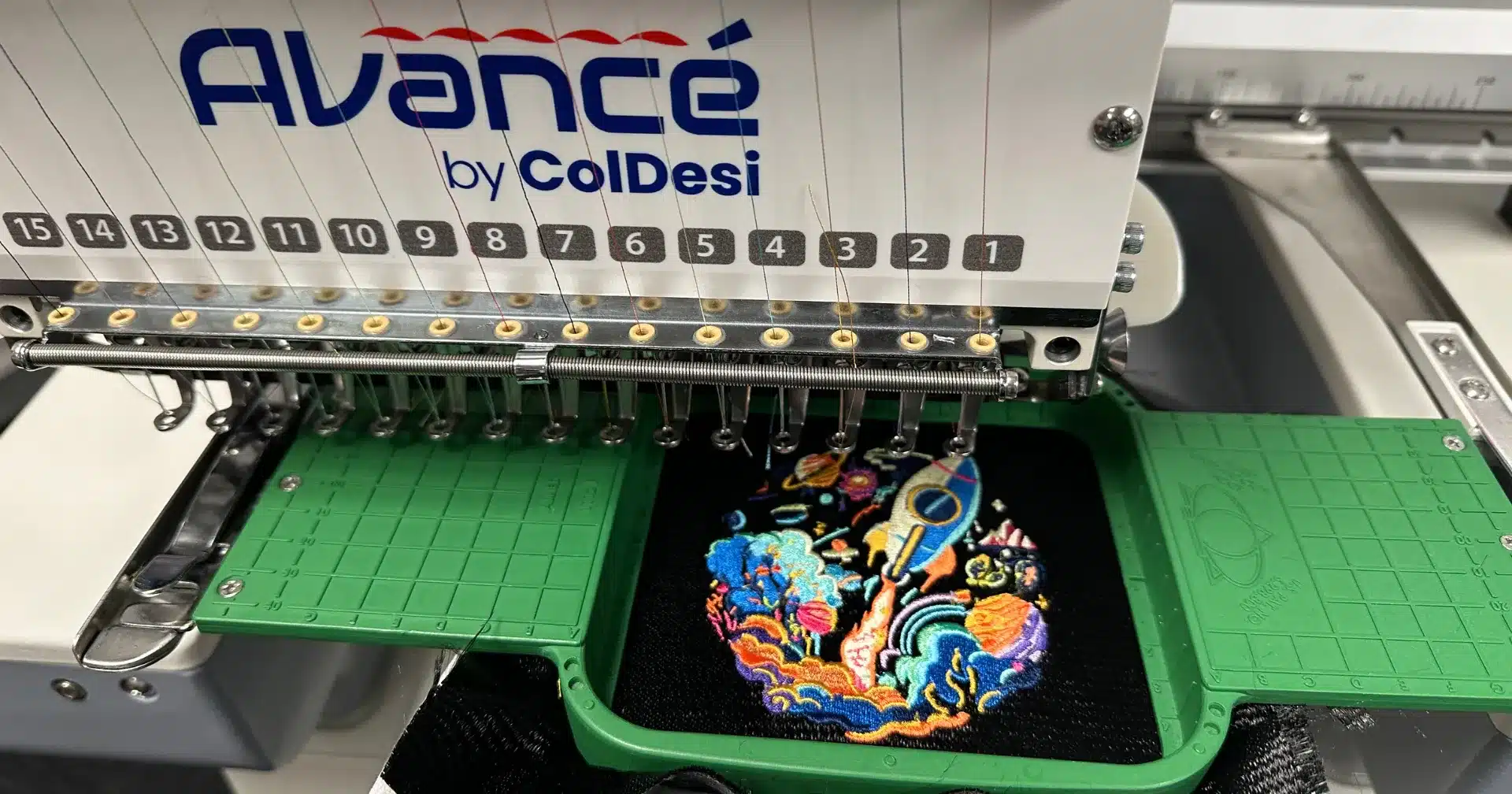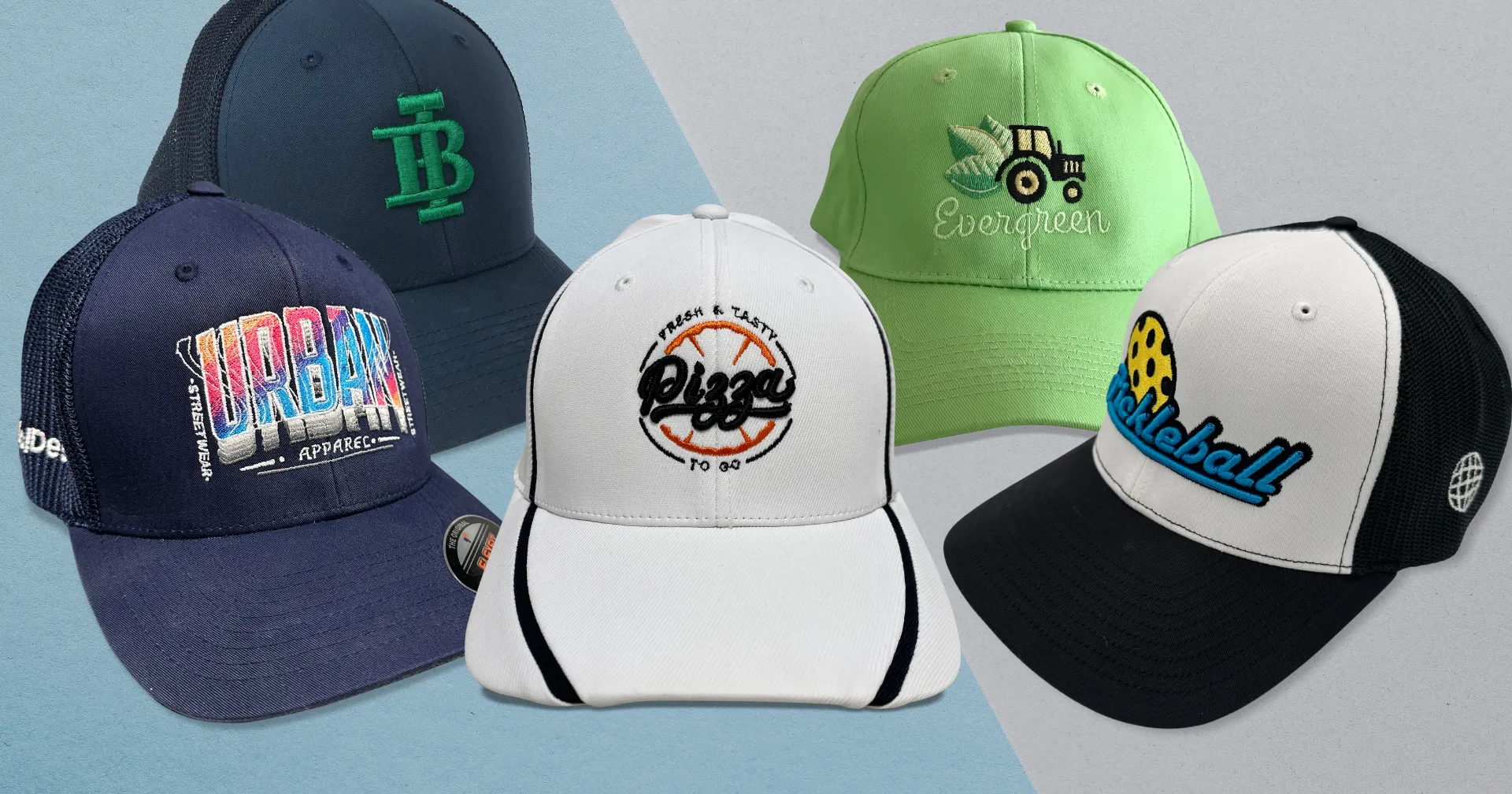
Episode 59 – How to Make More Money in Custom Tees
Choosing the Right Niche
Niche is a word that marketing professionals throw around all the time. However, what does it mean Really? Doing a simple online search of “what is a niche market” you’ll get definitions like:
A market niche is a subset market to which a specific product is focused. The market niche is defined as the product features aimed satisfying specific market needs. Price range, production quality and the demographics that is intended to impact. It is also a small market segment.
That definition is quite technical. To put it a little more plainly, it’s a group of customers you’re going to go after to sell to.
Be Intentional About Finding your Niche
If you’re already in business you most likely already have niche markets you work with. A lot of small business owners, and especially custom apparel businesses accidentally fall into a niche market. They do this simply because they get one customer and then 3-5 more that are all in the same group. Perhaps you start making shirts or caps for a local fisherman, who might recommend you to others. Before you know it you’re working on a local dock. Your niche market can organically grow like that. Another example is if you have children in a particular sport like dance or cheer. Then, you decide to start doing bling shirts for your kids, yourself, and the team.
The Pyramid Approach
When thinking about how niche markets work, imagine an upside-down pyramid. The top of the pyramid is really wide. At the top level, your niche market is “things on the earth” – whether that’s humans or animals. From there you start to narrow down and as you start to narrow down the number of people you have to market to also shrinks. You decide you want to limit your market to your local county – perhaps that’s 2 million. Then you want to focus on ladies’ apparel – 1 mission. You narrow your age range to apparel for teenagers, and so you’re now just marketing to a specific group of moms. As you start to think about how to narrow down your market, think about why you want to market to them. Is it because you like the fashion? Do you see a need in the market? Let’s get even more narrow. Think about what kinds of interest those teenage girls have. Band, cheerleading, dance, computers, science, etc. When you do this you can then start to focus. Narrow down what kinds of blanks you offer, ensuring that you’re getting the right cuts and sizes. A niche market is an interest or geographically based. It may be an activity or an area.
Why do you want a niche?
The smaller the niche market is, the more directed your efforts are, the more profitable you can sell something. If you were to create a t-shirt that said “Ford” on it, your market is everyone who owns or likes Fords. You could probably sell that t-shirt for $10-12. If you make a shirt directed at Ford Mustangs, you’ve now got a subset. You might get $15 for the shirt specific to Mustangs. What if you specialize in a time period? Such as Mustangs from the late 60’s. You can now place a little bit of a higher value on it. What if you were to go to a car show, take a picture of someone’s car, and print it on a shirt? The owner of the car will likely be willing to pay $30-35 for that shirt. As you find a market with fewer people to sell to, the price you can charge for serving that market goes up. So it becomes more profitable.
Focus your time and efforts
Why can you charge more the narrower the niche? It’s because a lot fewer people are focusing on that market. For those people in that market, it’s harder for them to find apparel specific to their niche. It’s this idea that you can go to almost any store and find a local college football shirt, but to get a shirt for a local high school will be harder. To get a sport’s team t-shirt with a kid’s name on it is even harder.
People can become afraid that if they don’t help everybody, then they’re going to miss out on money. Why would you limit yourself? Think about retail stores that only cater to specific customers.
Even McDonald’s and Starbucks have a niche market. In a shopping mall you’ll likely only have 5 big department stores. But even then there is a niche for going to a store where you can find everything – like Target or Macy’s.
Take Inspiration from others
There’s a reason that there’s a Forever 21, an H&M, a Banana Republic. A Banana Republic, Gap, and Old Navy might all be in the same mall, and they are in fact owned by the same company. But there is a reason they are separate stores. They cater to different niche markets.
Walk through the mall, and think about “why would this store only sell women’s shoes?” All their marketing is for women’s shoes. They can have more styles because they only offer women’s shoes, and not also men’s. They may also have access to different designers that also only cater to women.
If you’ve decided to market to female high school sports players. The supplies and blanks that you carry, the marketing you create is based around that target market. You do things that appeal you, young athletic girls. Noone says you also have to do things that appeal to 90-year-old men and 2-year-olds. Don’t turn away those customers, you’re just not actively seeking them.
Ways to arrive at a good niche
The niche that you love, may not be profitable. If you’re going to sell online only, it’s going to be more of a challenge to find that one guy that you want to put a picture of his Mustang on his shirt. You’re not going to the show to meet him. It’s not about attending events to build that market. You can go online and advertise that you’ll put people’s Mustangs on shirts, but that may not be the most profitable or useful investment.
Use Multiple Approaches
What’s another way to approach finding a niche and figuring out if it’s profitable? Use multiple approaches first. If you’re going online is to just start out with a general category – healthcare, automotive, sports, farming. Healthcare might not be a narrow enough niche, so you want to focus on nurses, and you might want to focus even further on geriatric nurses.
The questions become though, is that niche profitable and how do I access it? What do you do to figure out if that micro niche is a good one? Go on Facebook and look for groups that have to do with that niche market, and see how active they are.
What social activities do you see that make you think people are so enthusiastic about this niche? That they’re going to buy shirts? Will these people spend money and are they likely to buy shirts? When we were brainstorming this topic, we thought of flea market people. You might be part of a group that gets excited about flea markets and has an online group to share information about them. However, these people aren’t likely to spend money. They’ll haggle over pricing and so are unlikely to buy a $30 t-shirt.
Working with Enthusiasts
Think about sports or auto enthusiasts. What about the cost of the hobby and the income someone would have to make in general to take part in it comfortably. All these things are going to help determine whether you’ll be able to reach a group of people. Do they have the passion and the financial ability to buy garments? It doesn’t mean that the group has to be rich, but that they’re willing to spend the money and will figure it into their budget how to fund this passion. If that person had an extra $50 this month to do something with, would they spend it on their hobby? Or some custom apparel related to their hobby?
You need to find a niche that you like, that you can get to, and is easily identifiable. If your niche is people that hike mountains that are over 12,000 feet, where are you going to find them in order to get your stuff in front of them?
Common Concerns
Some people get concerned about limiting themselves to a niche market. They feel like other customers might slip away from them. For example, let’s say your niche market is teenage girls who are into sports. Your website is branded for that. If a gentleman who owns a local business lands on your site, are they going to leave? One question to ask is how did they find out about you? If you run into him at a local chamber of commerce event and are chatting. You ask “what you do for a living?”. Let him know that you specialize in custom girls clothing. However, you can do apparel for his business- it’s not all you know how to do. Be Willing to Modify Don’t become overly attached to a niche. Look at it as a business decision and don’t pick just one. You can narrow your niches down to just one, but let’s say you have a built-in preference to fishing. What’s on either side of that niche that you can test that might be better, have more potential, or cover if no one buys fishing shirts. You can also use this to help you expand your business. Perhaps fishing is doing really well, but canoeing and kayaking are just next door. Maybe that person who fishes also is really into canoeing. There’s also camping, hiking, etc. expanding your niche to more outdoor hobbies. Don’t try and do all of them at once, but pick two or three to develop, and test to see if canoeing, fishing, or hiking is better. You might get two that have a big market and the advantage of that is that you’re not going to spend 3 months investing in a market that doesn’t work out. Keep a few projects going on at once.
Buying Blanks
When you have a niche you can tailor your samples to that niche. You can decide what kinds of blanks would work best for that market. Research what kinds of materials would be best – does it need to be 100% cotton, or waterproof, or extremely breathable. It also helps you establish a price point. Perhaps you’re thinking about related markets. You should also be thinking about the products you’ve created and become an expert on. Who else can you sell those to? You’ve got the youth girls sports apparel. Maybe you can push that into fitness, which is different from sports – gyms, yoga studios, etc.
There’s a lot to it
So, maybe this is starting to seem like a lot – a lot of planning, a lot of strategies. Also, a lot of thinking before you even make your first shirt or do your designs, good. That’s what we’re trying to get you to do. Picking a niche market can be the key to making big money. And on the flip side, it can be the key to going out of business if pick wrong. While that is part of the fear many people have, it’s part of the risk and the reward. Often we talk to people and they say that the market is saturated with t-shirt shops. The reality is this becomes true for any business – from restaurants to auto mechanics. The difference is when you look at the successful businesses, over time, they’ve focused on a little niche group of people.
Don’t Be Afraid
If you’re too afraid to try, then you’re avoiding a risk that is going to help you make more money. All you’re trying to do is compete against other t-shirt shops. Then all you’re going to run into is people who call all three shops. They are ones always looking for the best price, regardless of who they will buy from. You’ll be constantly racing to get the lowest price. You’re not going to be making the money you want to make. So, unless you’re setting up your business to do that. As an exercise for you to do, write down any niche markets you’re in. Then find the niche markets to either side. If you have one big customer or a handful of smaller customers that do something very specific. You’re sort of already in a niche market. Even if you’re not doing any targeted marketing. What if you took those customers and developed a mini catalog of product you consistently sell. Try to find other people like them? Another part of the exercise is to draw that triangle we talked about.
Categorize Your Niches
Thinking about who you want to sell to, where are you selling. How can you categorize people so that you’re removing non-potential customers? What are their demographics, what are their interests, jobs, etc. Go all the way to the point where it’s potentially too narrow, and then go up one level. Try to find a balance where there’s enough people to market to, and then go for it. We’d love to hear from you about the niche’s you pick. Send us an email or post it on our Facebook group. We might even give you some tips on how you can go after it.
Give it a try. Spend some time and money developing your materials. Develop your pitches, etc. and see if it doesn’t increase your sales or your profit margin. Have a good business!
- Join us on Facebook: Custom Apparel Startups
- Listen to more podcasts: caspodcast.com
- Watch some sales and business webinars: caswebinars.com
- Learn more about Rhinestone Machines, Embroidery machines. Also, Direct to Garment Printing and more at coldesi.com






